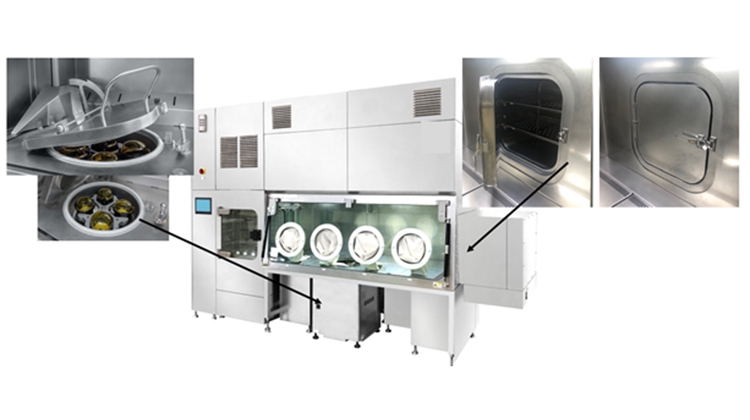More than 1,000 companies are conducting research in cell & gene therapies globally with hundreds of candidates in clinical trials. In the next 10 years, it is expected that a large number of ATMPs will come into commercial production. How can the transfer from clinical trials to manufacturing take place? What is the right technology to ensure product protection as well as protection against possible cross-contamination? ATMPs are seen as the gold rush in the pharmaceutical sector in the next decades.
Boston is the place to be for ATMPs, as many companies are located in Massachusetts. During the 2022 ISPE Aseptic Conference, it was mentioned that ATMPs should also follow aseptic processing to pose no additional risk to the product during manufacturing. If we look at the newest draft, Annex 1 barriers, like RABS or isolators, are the preferred solutions. The operator does have a physical barrier between the pharmaceutical product and himself. The inner part of, for instance the Isolator, is grade A with a validated decontamination system. The required process technologies can also be integrated as no additional transfer of the product is needed (see image).
Technologies cost and project management are important factors. At the 2022 ISPE Biotechnology Conference in Boston, we have planned the following highlights during the ATMPs sessions:
Managing project complexity through project cost management in the life science sector.
This research speech investigates what are currently the most widely used project cost management techniques in the life science sector (pharmaceutical, biopharmaceutical and medical device industries) as well as exploring the impact project complexity has on project cost management and also how project cost-management techniques can be used to manage project complexity.
A systematic literature review was conducted, and a questionnaire survey was developed and distributed to collect quantitative data on a representative sample of life science sector professionals, mainly based in Ireland, on practices and techniques relating to project cost management, project controls and project complexity. The survey questionnaire respondents include project sponsors, end users, program managers, project managers, technical team members and other project-related roles.
The key findings: across all project complexity literature sources reviewed, a total combined count of 564 project complexity factors were analyzed and coded into 33 groupings.103 respondents from the life science sector completed the survey. The survey found that one of the top issues likely to cause project cost overrun is related to inadequate identification and management of project complexities.
Effective management of project complexity can reduce project cost overrun, and effective project cost management can reduce the negative cost impacts of project complexity. This presented research paper recommends that project professionals working in the life science sector should assess project complexity more regularly to better manage projects and reduce the likelihood of cost overrun. Furthermore, a Delphi method study, or equivalent research undertaking, should be conducted to develop a project complexity assessment that is tailored to life science sector projects.
“Why Should I Consider Continuous Manufacturing?"
Buffers are critical inputs into all downstream bioprocessing steps for the manufacture of therapeutic proteins and other biomolecules. The large volumes of buffer required present ongoing logistical challenges and buffer production represents a significant portion of facility footprint, labor requirements and equipment costs. As a response to biopharmaceutical buffer management challenges, a global team including biomanufacturers, supply, and engineering partners collaborated on a new approach to buffer preparation. It resulted in the design, build, and testing of a full-scale, cGMP manufacturing ready, on-demand buffer manufacturing system called the NIIMBL-BioPhorum Buffer Stock Blending System. The collaborative approach represents a first of its kind in terms of the open-source availability of technology, data and documentation intended to democratize the technology (design will be published in full), accelerating the adoption of this key piece of manufacturing innovation.
The 2022 ISPE Biotechnology Conference will be in-person in Boston, MA and virtually, and is my third highlight for me in 2022 after the 2022 ISPE Aseptic Conference and the 2022 ISPE Europea Annual Conference. I`m proud to be part of the program committee for the 2022 ISPE Biotechnology Ccnference again. I hope that the highlighted topics serve your needs and interests on GMP for ATMPs during the 3-day conference and welcome you to join us and be part of the ISPE biotechnology family.
Learn More & Register






